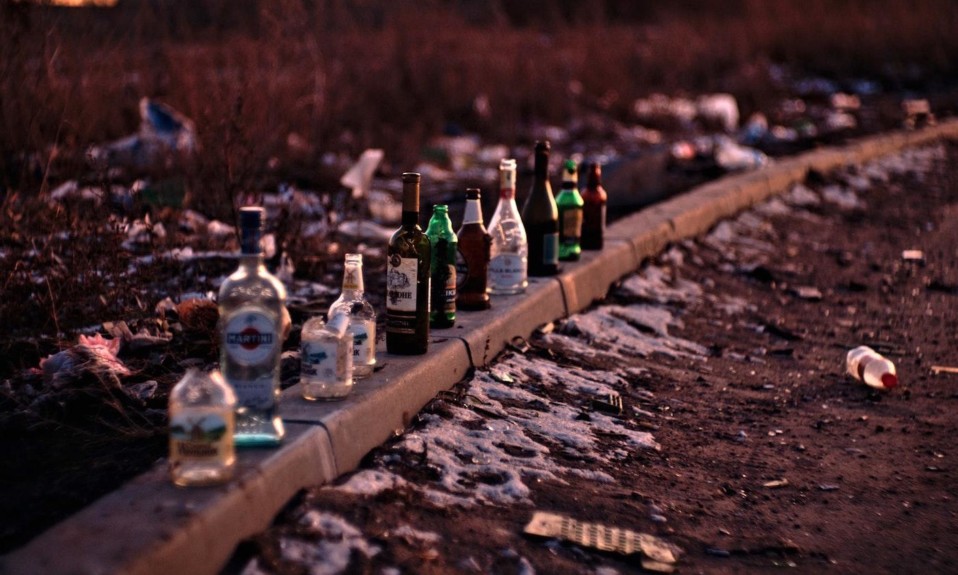Managing social situations—work, school, home, friends—is vital to staying sober after treament. Here are some tools to help
By Ryan Blackstock, Psy.D.
A big key to relapse prevention is learning to cope with social pressures that lead us away from our program. When we look at where social pressure comes from, we can begin by identifying the places in which social pressures occur. A short list might be:
- Work
- School
- Home
- Friends/Recreation
People’s understanding of treatment and addiction varies greatly. So part of your recovery requires you to be prepared to handle these situations as they arise. If your treatment stay resulted in an absence at work, school or some other setting, you can reasonably expect people to be curious about what happened and where you’ve been. Often, rumors and stories will escalate in your absence, and people will tell you all sorts of strange things they heard happened to you.
If you’re returning to work, you’ll be challenged by the old routines. Just because you went to treatment doesn’t mean other people stopped going to the bar at lunch or smoking a little pot on their breaks out back. You should expect those things to continue happening. If there are other sober people in your workplace, those are the folks to be around at lunchtime. You might also carry a pocket version of the Big Book or other recovery literature with you if your job tends to have extended breaks or regular delays.
The key to empowering yourself is to demonstrate change right off the bat.
Embrace Your Choice
First, make sure you are saying that you are choosing to stay sober.
That’s a lot different from, “I have to stay sober for _________”—whether that’s your spouse, the court, your boss or whatever pertains to you.
Often when people you previously used with or bought from hear, “I have to stay sober [for some external reason],” they’ll try to help you find ways around it. This can come in the form of invitations of secrecy (“No one will know”; “I won’t tell if you don’t”), methods to beat drug tests, or even testimonials of how they themselves got away with it. When the desire to stay sober is your choice, it sends a different message to those who might want to help lead you astray and to folks with more innocent intentions.

In the latter case, you can thank people for wanting to include you, and gracefully decline: “Thanks for the invite to the after-work party, but that is not in my best interest, so I’ll pass.” You might get promises that no one will drink around you or offer you something, but your best bet is to avoid those situations altogether, at least until you and your sponsor or support group have determined you’re in a place where you can handle yourself. And even then I would recommend a recovery plan.
If there is a lot of pressure on being in attendance, like a mandatory office Christmas party, where people are often drinking, you’ll want to have a plan if you have to go, such as to attend with another sober person and not stay long. Make sure you process your feelings before and after.
Know Your Environment
In the case of the environment you’re in, there’s an old saying: “If you hang around a barbershop long enough, you’re going to get a haircut.” Yes, you may still need to work, and you might have to cope with some loneliness, but the payoff in ongoing recovery is worth it. It’s your life at stake.
If you are returning home and your family still uses, that is an issue that needs to be addressed. If other people in your home are refusing to help in providing a sober atmosphere, you have work to do and choices to make.”
School is not so different from work. It’s a place you are going to in order to achieve a certain result. Whereas work’s results are a paycheck, benefits, healthcare and the like, for school the results are an education, credits or hours toward a degree, diploma or certification.
The result is what you must be focused on. You will likely encounter other students who will tell you about a party, a rave or some other big event. You have the right and the ability to decline those invitations. If you’re on a college campus, you might find some solace in the library, and sometimes it will have a copy of at least the AA text available.
If you are returning home, and members of your family still use, that is an issue that needs to be addressed. The best scenario is to not have any alcohol or drugs in the house. You may want to have your sponsor accompany you to help throw out bottles or stashes that could still be waiting in your hiding spots. If you were addicted to prescription drugs, you might have to find support to get rid of those pills.
If other people in your home are refusing to help in providing a sober atmosphere, you have work to do and choices to make. Sometimes the family sees you as the identified problem, and reacts by saying, “We’re not the ones with the issue—why should we have to change?” Although that isn’t a helpful attitude, it’s important to understand it. Often, your family members’ lives have been affected because of your addiction, and now that you’re sober they feel it happening again—lots of changes to the household that revolve around you. This is why family therapy is so important in early recovery.
Ultimately, if home becomes a risky area, you will probably spend less time there. If home can become a safe zone, you are likely to spend more time there.
Choose the Right People
One of the classic recommendations when you left the 28-day treatment was to send a message to your old using “friends” that you would not be coming around anymore. Those messages used to be face-to-face, but now with email, cellphones and texts, this has become less of a hurdle, at least in terms of getting the message out. You don’t have to take an angry or righteous stance—simply convey that you’re choosing to be in recovery and need to be around sober people. You don’t need to convert those acquaintances to AA, nor do you need to or hang out once more “for old times’ sake.” You simply need to stand up for your recovery and move forward with life. This can be a tough task, but it’s well worth the effort. If you stick with your recovery, you never know who might seek you out in the future, when they decide they want to get sober.
You’re deleting that number so that on harder days in recovery, which we all have, that number isn’t convenient to you. With a little time, you’ll have new phone numbers of people who support your recovery.”
Another part of this process is deleting the old numbers in your phone. There is no reason to hold on to your dealer’s number, and yet early in recovery, sometimes there is a hesitancy to do so. I tell clients it’s not as if you couldn’t find what you wanted if you really decided to go back to using. But you’re deleting that number so that on the harder days in recovery, which we all have, that number isn’t convenient for you. With a little time, you’ll have new phone numbers of people who support your recovery, and those will be the numbers you will reach out to.
On the other hand, if you choose to keep hanging out with the same people you did before, and the only thing that changes is that you’re not drinking or using, my guess is your recovery is going to be short-lived. Recovery involves change at many levels, not only not drinking or using. That’s just being dry or abstinent.
From years of working in the field, I know that not everyone does this. In fact, probably very few do the first time. Newly recovering people often want to test the waters, and see if they can hang out and just not drink, or if they can be the designated driver. Generally, one of a few things happens:
- They stay sober and see how dysfunctional their friends are, hear people repeat stories, spill drinks and so on. It makes them wonder what their past behavior was really like, and they realize they don’t want that kind of thing to be a part of their lives anymore.
- They attend and stay sober but are miserable because everyone else seems to be having a good time. They are hyper-aware of the drinks around them or of what so-and-so is really doing when he steps outside. They feel tempted but try to hold up the façade that they’re OK. If they talk about this with supportive recovering people, they may realize that they have to confront issues about entitlement to drink, being angry about being an alcoholic, etc. If they don’t talk about it, they get seduced into the idea that they can manage without help, and they relapse in a short period of time.
- They relapse at the event. They might not turn to their favorite beverage or their drug of choice, but an old friend shows up, and they smoke a joint together or share a drink. This is the return to active addiction.
Find Your Real Friends
Another notion about “friends.” This is likely a word that a recovering person should redefine. Friends tend to be there for one another, support one another, and in a good friendship they tell you when they think you’re screwing up, because they care.
When we’re in our addiction, we call it ‘using’—and that’s not by accident. People use one another to get to the next drink, pill, fix or high.”
When we talk about our “using friends” or “drinking buddies,” these are people we shared a drugged state with. One question we asked in the classic treatment center was, “How many Get Well cards did you receive from those people while you were in here? How many came to visit?” With very rare exceptions, the answer was, “None.”
Think about it: When we’re in our addiction, we call it “using”—and that’s not by accident. People use one another to get to the next drink, pill, fix or high. When the drugs or money run out, so does your utility.
If we use the notion of the “perceived self”—where you are and how your life is right now—and the “ideal self”—where you want to change and how you want your life to be—are the people you’re spending time with helping you to take steps closer to your goal? Do they support and promote healthy behaviors? I’d argue that real friends do that for us.
Make Your Priorities Your Priority
Perhaps the biggest tool for combating social pressure is to make sure you have your priorities in check. It’s unlikely that much else will get better or stay better unless you have sobriety. If you place a high value on your sobriety and what sobriety can bring to you—renewed trust from family, better relationships, stability, etc.—you’re less likely to be influenced by social pressure.
Sometimes a relapse is called a “slip,” though it’s hard to imagine “accidentally” drinking a fifth of vodka. SLIP can stand for:
SOBRIETY
LOSES
ITS
PRIORITY
When we’re clear as to what our priorities are—which is about our behavior being congruent with our values—we make choices that reflect our priorities. If your top priority is to stay sober, then you can simply ask, “Does this choice reflect my top priority?” If the answer is no or not really, it’s probably not in your best interest.
I hope these thoughts help you.
Ryan Blackstock PsyD, LP, CAADC received his doctorate of psychology from the Center for Humanistic Studies in 2006 and has worked as an addiction counselor since the early 1990s. He earned a distinguished service award from the National Kidney Foundation (Michigan chapter) for pioneering a substance abuse education program for people awaiting organ transplant. Blackstock teaches at the Michigan School of Psychology master’s program. In his free time, he enjoys game design, playing heavy metal and studying symbolic aspects of ancient Egypt.
Photos: Joel Muniz (top), Kelsey Chance














